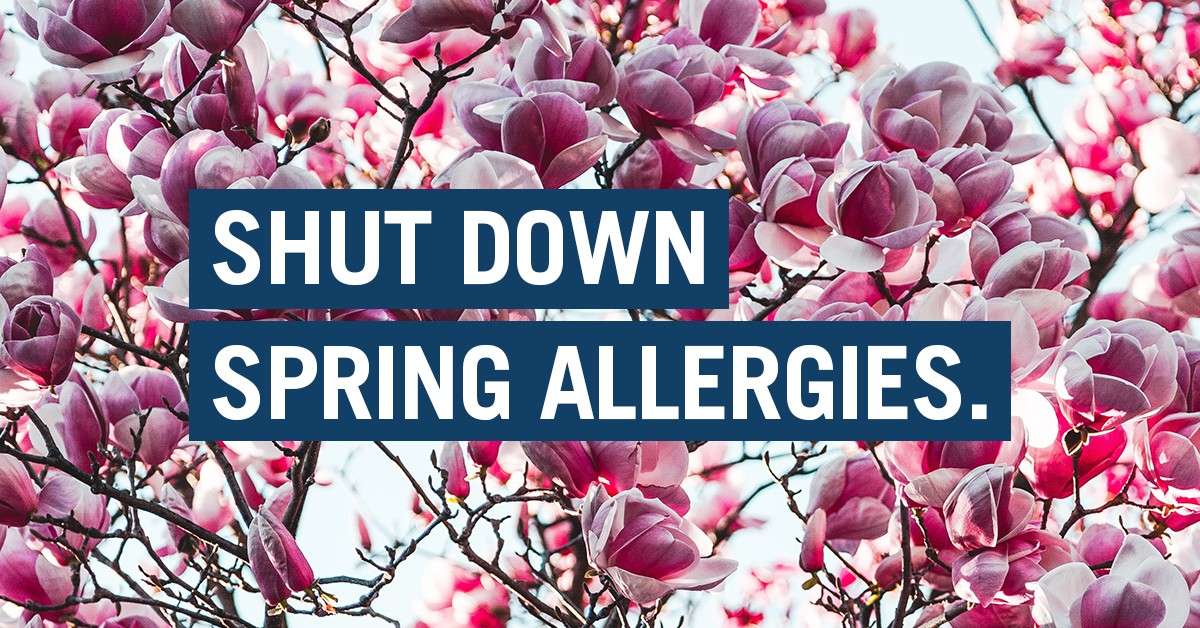
Spring Allergies – And How to Treat Them
As the seasons change, so will your allergy symptoms. Allergy symptoms make you feel simply awful. Congestion, post-nasal drip, itchy eyes and sneezing wear your body down. Chances are if you have seasonal allergies, the symptoms impact your day-to-day life. You can combat your allergic reactions with these seasonal tips.
Spring
Mould growth blooms indoors and outdoors with spring rains. As flowers, trees, weeds and grasses begin to blossom, allergies will follow. Spring-cleaning activities can stir up dust mites, so be sure to:
- Wash your bedding every week in hot water to help keep pollen under control.
- Wash your hair before going to bed, since pollen can accumulate in your hair.
- Wear an inexpensive painter’s mask and gloves when cleaning, vacuuming or painting to limit dust and chemical inhalation and skin exposure.
- Vacuum twice a week.
- Limit the number of throw rugs in your home to reduce dust and mould.
- Make sure the rugs you do have are washable.
- Change air conditioning and heating air filters often
- Antihistamines, corticosteroids and decongestants, as well as other OTC allergy medications, counteract the effect of the histamine produced by the body.
Summer
Warm temperatures and high humidity can put a strain on seasonal allergy and asthma sufferers. Summer is the peak time for some types of pollen, smog and even mould:
- Stay indoors between 5 a.m. and 10 a.m., when outdoor pollen counts tend to be highest.
- Be careful when going from extreme outdoor heat to air conditioning. The temperature change can trigger an asthma attack.
- Wear a mask when you mow the lawn or when around freshly cut grass. Afterward, take a shower, wash your hair and change clothes.
- Dry laundry inside instead of on an outside clothesline.
- Check your yard for allergens, as well as other irritants such as oak, birch, cedar and cottonwood trees; weeds such as nettle or ragweed can also trigger allergies.
- Wear shoes, long pants and long sleeves if allergic to bee stings.
Best Natural Supplements for Allergy Symptoms
- Spirulina
- Quercetin
- Butterbur
- Probiotics
- Vitamin A
- Zinc
- Bromelain
- Stinging Nettles
Always Stay Hydrated! Drink 8 to 10 glasses of fresh water each day! If you get dehydrated, any mucus you have will become much more difficult to expel.